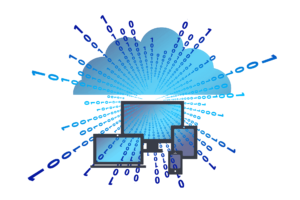Imagine a doctor with a superpower: the ability to predict future health outcomes based on data. This isn’t science fiction but reality, thanks to the emergence of machine learning (ML) and artificial intelligence (AI) in healthcare.
AI and ML work with clinical data to offer unprecedented insights. They can identify patterns hidden deep within vast amounts of data. It helps medical professionals predict disease progression, optimize treatment plans, and do much more.
In this article, we’ll shed light on the key applications of machine learning in clinical data analysis to understand how they revolutionize the way we approach healthcare and patient treatment.
Top 7 application of machine learning in clinical data analysis
Artificial intelligence (AI) and machine learning (ML) turn raw clinical data into actionable insights that lead to improved patient treatment and outcomes.
The applications of machine learning in clinical data analysis are vast, ranging from predictive models to advanced imaging diagnostics. Let’s look at the top seven applications of AI and ML in clinical data analysis.
- Improving Patient Care and Medical Research
With large amounts of training data at their disposal, ML models can decipher complex patterns and trends. These capabilities enhance patient care by enabling the prediction of health outcomes and the provision of personalized treatment recommendations.
The traditional drug discovery process, which typically takes 12-15 years, can be accelerated using machine learning. Predictive modeling based on clinical and molecular data can help identify molecules likely to be successfully developed into drugs. This approach can cut costs and the time usually spent on trials.
AI also enhances disease diagnosis, such as skin cancer diagnosis, using image databases. Companies like IBM Watson Genomics, Google’s DeepMind, and Berg leverage AI for precision medicine, aging eye disorders, and oncology. On the other hand, projects like Oxford’s PReDicT are using predictive analytics for diagnosing and treating brain-based diseases.
- Using CMS Datasets for Healthcare Machine Learning Research
CMS datasets are loaded with critical information about patient care and health outcomes. They are a gold mine for healthcare research. The power of AI and ML can be harnessed to extract valuable insights from these datasets.
ML, for instance, can identify trends in treatment efficacy and detect risk factors for specific diseases. It can even predict future healthcare needs based on historical data.
Utilizing AI and ML in CMS dataset analysis provides us with a clearer, more comprehensive understanding of patient needs and healthcare trends.
- Accessing Neuroimaging Data for Collaborative Healthcare Research
Healthcare AI has transformed neuroimaging data analysis. Advanced algorithms, programmed to interpret complex images like MRIs and CT scans, can detect subtle changes that might go unnoticed by the human eye. This leads to more timely diagnoses and treatments.
Furthermore, the sharing of neuroimaging datasets among researchers is fostering collaboration. It facilitates the training of more accurate models, which results in improvements in patient care and accelerates progress in the field of neurology.
- Biomedical Data and Machine Learning Research
Biomedical datasets often contain large, intricate data structures and can be efficiently analyzed using AI. This expedited analysis is paving the way for significant breakthroughs in genomics, drug development, and disease modeling.
The rapid growth of medical AI has contributed to rapid data analysis, whether for genetic sequences or chemical structures. The quick and efficient evaluation of this data enables the identification of new treatment paths and therapeutic targets. Thus, it accelerates the pace of medical advancement.
- Analyzing High-Value Health Data
AI and ML technologies effectively extract insights from high-value health data. These include clinical text and ECG readouts, among others.
Natural Language Processing (NLP), a subset of AI, can process and interpret unstructured data found in clinical texts. It helps healthcare professionals extract essential information more efficiently.
AI technologies can analyze diagnostic imaging and ECG data to detect irregularities. This dual-sided approach significantly enhances the early diagnosis of various conditions to improve patient outcomes.
- Enhancing the Accuracy of Lesion Detection with AI and ML
The use of machine learning for lesion detection has shown significant promise for increasing accuracy and efficiency.
ML models, trained on thousands of images, can swiftly identify patterns and anomalies like cancerous lesions. This rapid analysis substantially reduces the time taken for diagnosis compared to traditional methods.
Furthermore, minimizing human intervention also reduces the risk of error. With this innovative application of ML, the healthcare industry is gaining a powerful tool in the fight against diseases such as cancer.
- Utilizing Machine Learning for Improved Lung Disease Diagnosis and Treatment
Machine learning plays a pivotal role in diagnosing and treating lung diseases. AI technologies can analyze CT scans to detect early-stage lung cancer or signs of chronic lung diseases, often before patients experience symptoms.
Beyond diagnosis, ML is useful in tracking disease progression and predicting how patients will respond to treatments. This data-driven approach to lung disease management transforms patient care by being more proactive, personalized, and effective.
Through such applications, ML continues to revolutionize how we approach healthcare and disease treatment.
Conclusion
The applications of machine learning and AI in clinical data analysis are extensive and groundbreaking. They offer immense potential for reshaping patient care, improving medical research, and providing earlier and more accurate diagnoses.
From mining CMS datasets to lesion detection, the innovative use of AI and ML has already begun to transform the landscape of the healthcare industry.
As we continue to unlock the full potential of these technologies, we are certain to witness an even greater revolution in healthcare. It promises a future of improved patient outcomes and efficiency.
Author Profile: Hardik Parikh

With more than 15 years of experience creating and selling innovative tech products, Hardik is an accomplished expert in the field. His current focus is building and scaling Shaip’s AI data platform, which leverages human-in-the-loop solutions to provide top-quality training datasets for AI models.




